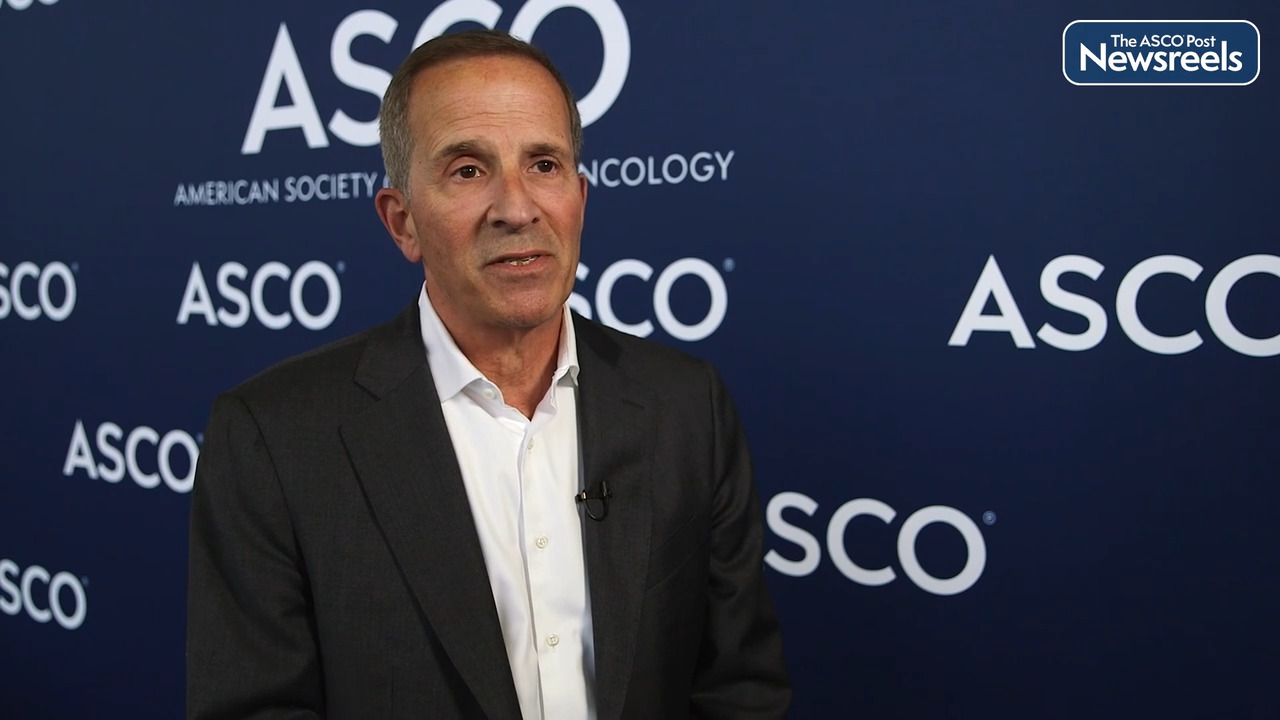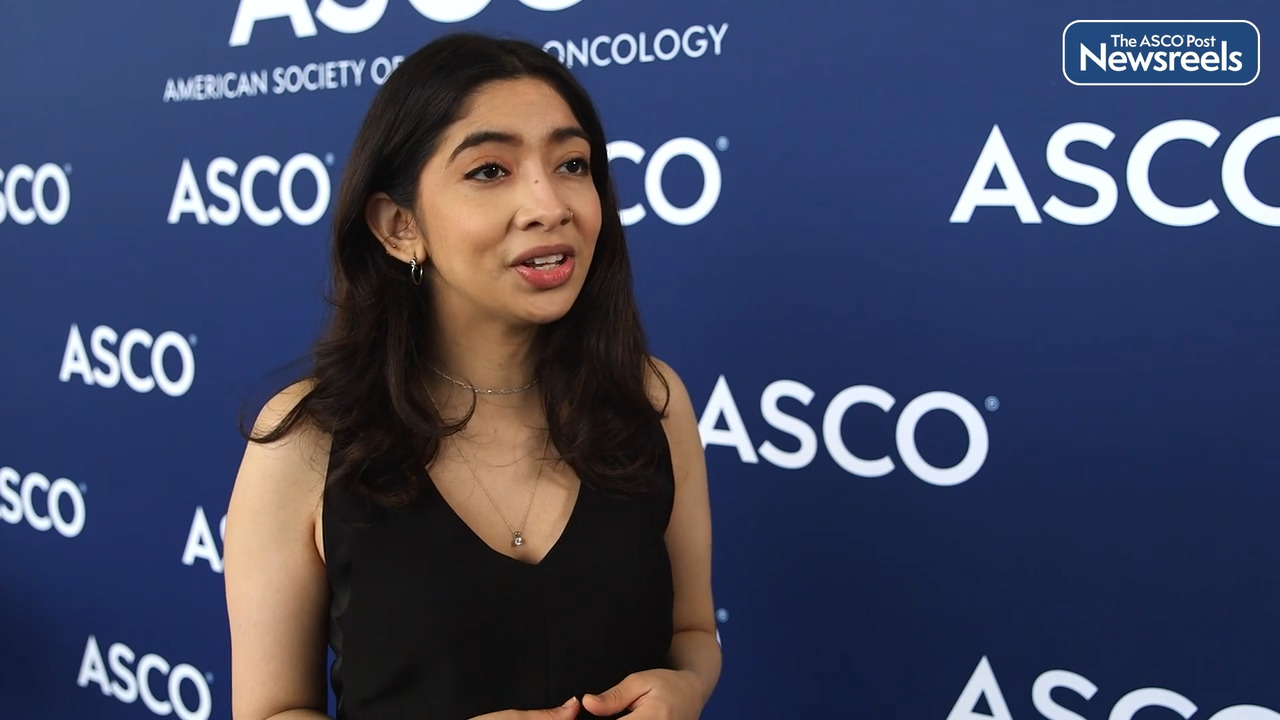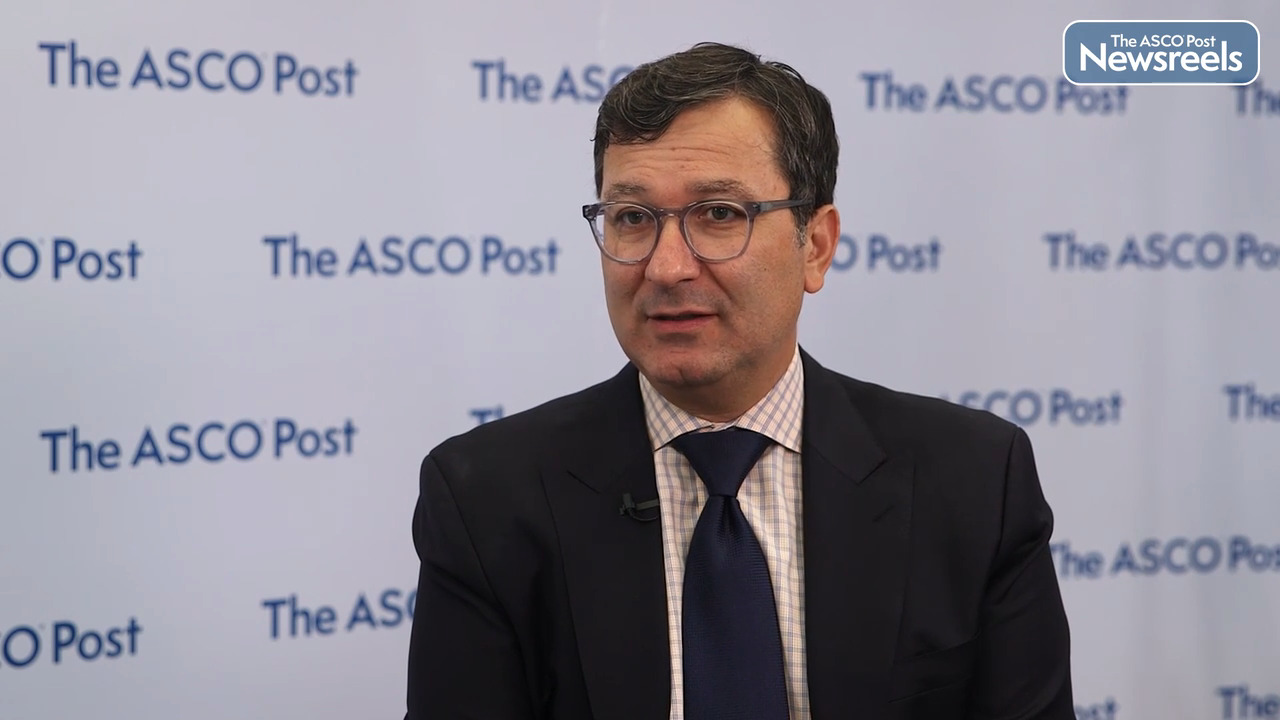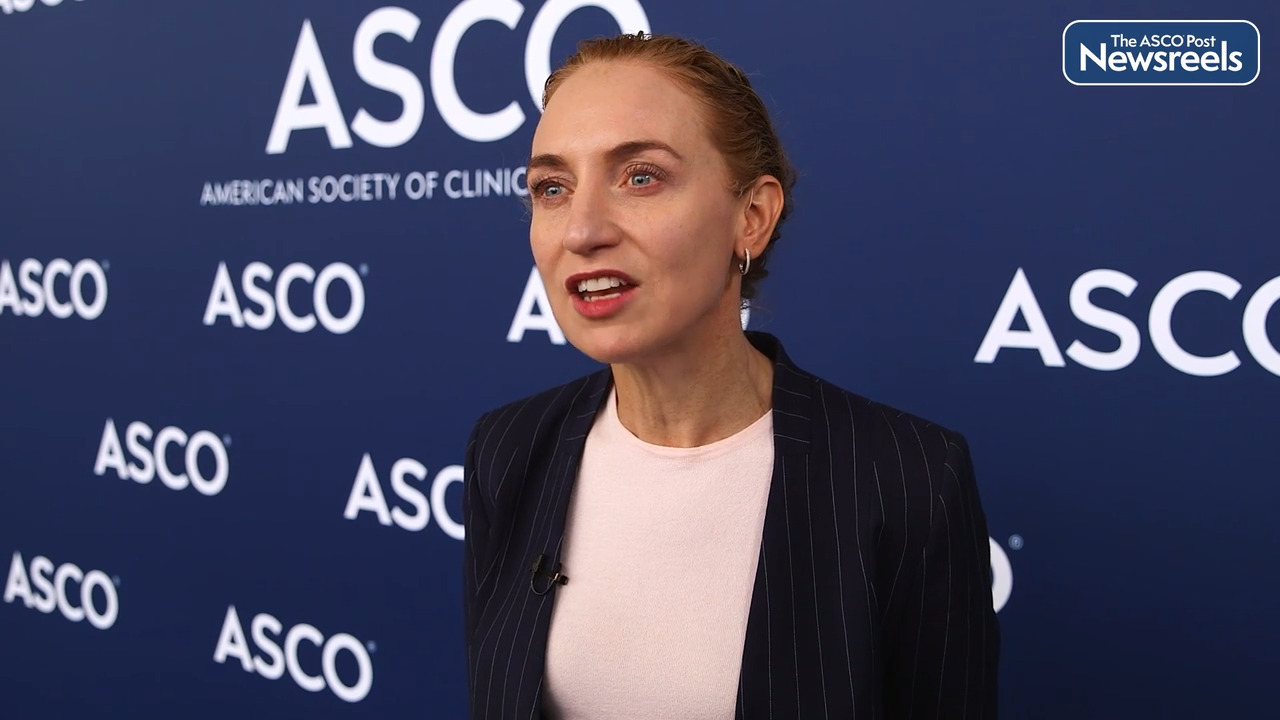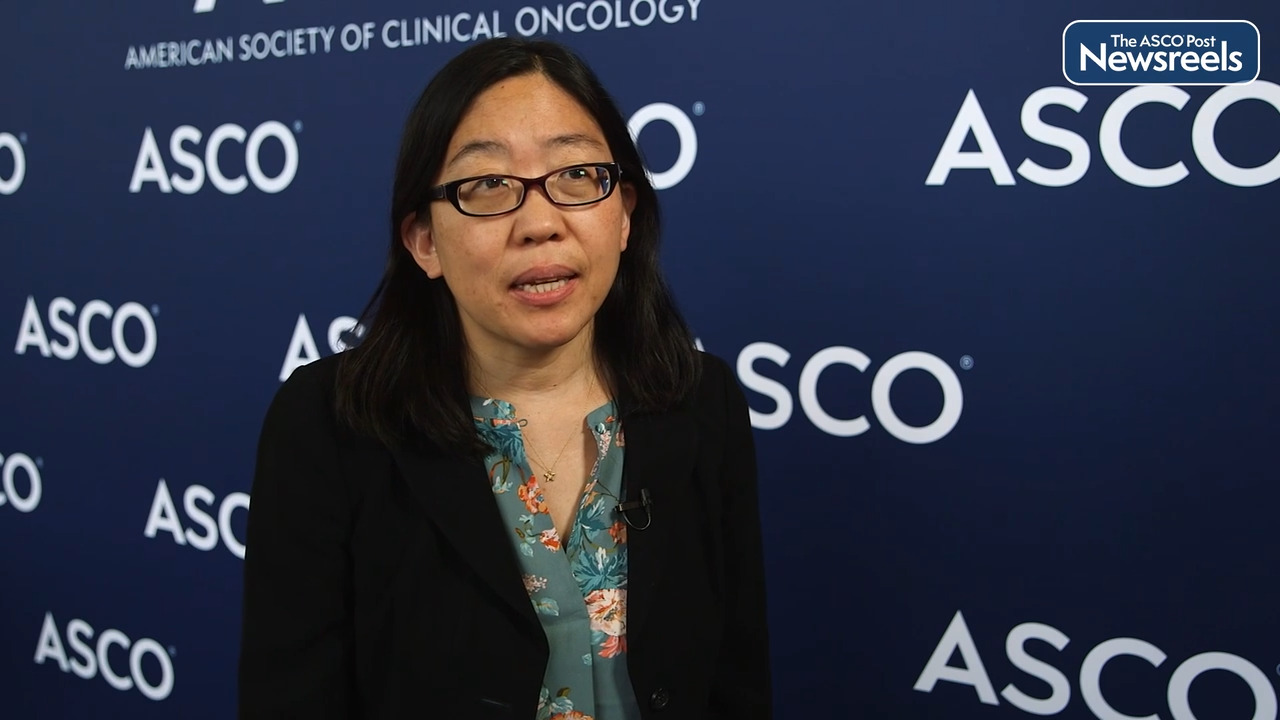Maxwell Oluwole Akanbi, MD, PhD, on Lung Cancer: The Effect of Screening on the Incidence of Advanced Disease
2022 ASCO Annual Meeting
Maxwell Oluwole Akanbi, MD, PhD, of McLaren Regional Medical Center, discusses the study he conducted, using the SEER database, to evaluate the impact of lung cancer screening recommendations on low-dose CT scanning. The data suggest that guidelines from the U.S. Preventive Services Task Force led to a more rapid decline in the incidence of advanced disease in the United States, especially among minority populations (Abstract 10506).
Transcript
Disclaimer: This video transcript has not been proofread or edited and may contain errors.
Lung cancer is the leading cause of cancer mortality in the US, and this is because most patients with lung cancer are diagnosed at advanced stages of the disease. Trying to make patients present earlier has been an elusive challenge, until in 2011, when results of the National Lung Cancer Trial were reported. This study showed that low-dose CT scan could improve survival in patients with lung cancer by making earlier diagnosis. Although this has been shown in clinical trials, the government has ruled out lung cancer screening in the general population without also actually knowing whether it is efficacious in the general population.
Our study was to evaluate the effectiveness of lung cancer screening in the US general population. You will use the SEER database, we analyzed data of patient diagnosed with lung cancer from 2004 to 2018. Our goal was to see if the incidence of advanced lung cancer reduced over this time. Our results showed that incidence of advanced lung cancer actually decreased in the US population following the rollout of lung cancer screening. This was particularly significant in minority populations. This is encouraging because there have been concerns that lung cancer screening may not be very effective in this population because they had limited access to screening facilities.
So, while this is encouraging, the work is not yet done. Our end goal is to make sure there's reduction in lung cancer mortality. There are still barriers between screening and mortality, so the next stage of our study will be to see whether this reduction in incidence of advanced lung cancer actually translate to reduction in lung cancer mortality.
Related Videos
The ASCO Post Staff
Neal D. Shore, MD, of the Carolina Urologic Research Center, discusses his study findings, showing that germline genetic testing influenced care for patients with prostate cancer. Men whose genetic test was positive for a pathogenic germline variant received more recommendations for changes to follow-up and treatment, and for testing and counseling of relatives, than did patients with negative or uncertain test results (Abstract 10500).
The ASCO Post Staff
Jenny S. Guadamuz, PhD, of Flatiron Health, discusses the use of telemedicine services in community oncology clinics for patients initiating treatments for 21 common cancers during the COVID-19 pandemic. Black, uninsured, non-urban, and less affluent patients were less likely to use telemedicine services. Although telemedicine may expand access to specialty care, the proliferation of these services may widen cancer care disparities if equitable access to these services is not ensured, according to Dr. Guadamuz (Abstract 6511).
Karim Chamie, MD, of the University of California, Los Angeles, discusses final clinical results on combining the superagonist N-803 with bacillus Calmette-Guérin (BCG) in patients whose carcinoma in situ and high-grade non–muscle-invasive bladder cancers are unresponsive to BCG alone. Of note, cystectomy was avoided in more than 90% of patients with 2 years of follow-up (Abstract 4508).
The ASCO Post Staff
Georgina V. Long, MD, PhD, of the Melanoma Institute Australia, The University of Sydney, discusses phase III findings from the KEYNOTE-716 study. The trial showed that compared with placebo, adjuvant pembrolizumab significantly improved distant metastasis–free survival in patients with resected stage IIB and IIC melanoma. The findings also suggest a continued reduction in the risk of recurrence and a favorable benefit-risk profile (Abstract LBA9500).
The ASCO Post Staff
Sue S. Yom, MD, PhD, of the University of California, San Francisco, discusses a translational analysis from the NRG-HN002 study. This phase II trial established the feasibility of the tumor tissue–modified viral (TTMV) human papillomavirus DNA assay in clinical trial specimens. The goal is to use such an assay to measure tumor volume, levels of TTMV over the course of treatment, and the association of TTMV to treatment outcomes (Abstract 6006).
